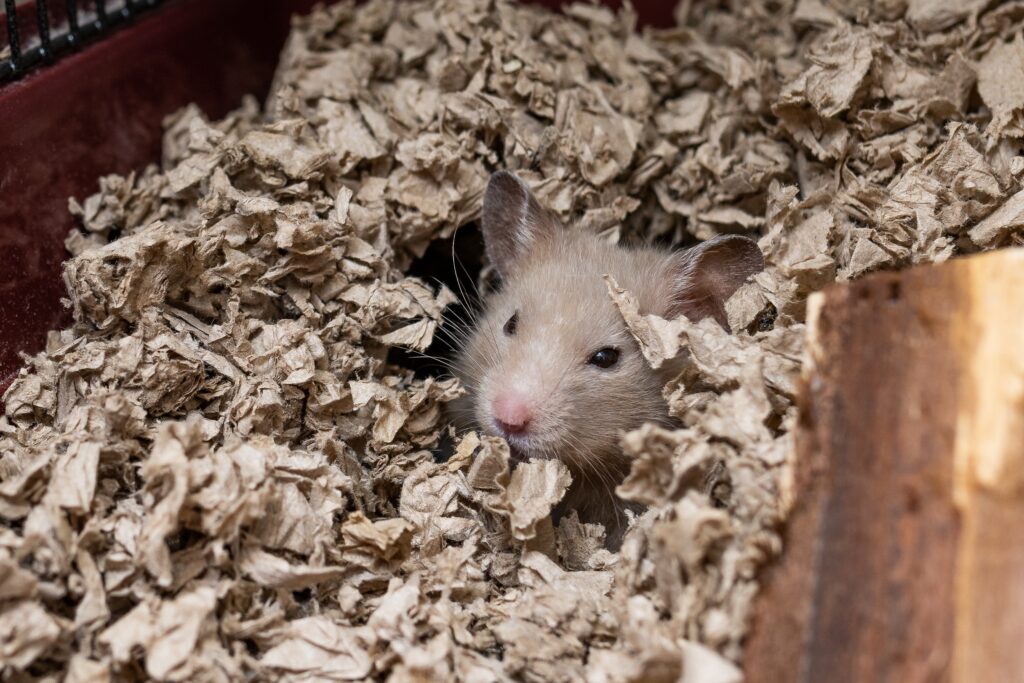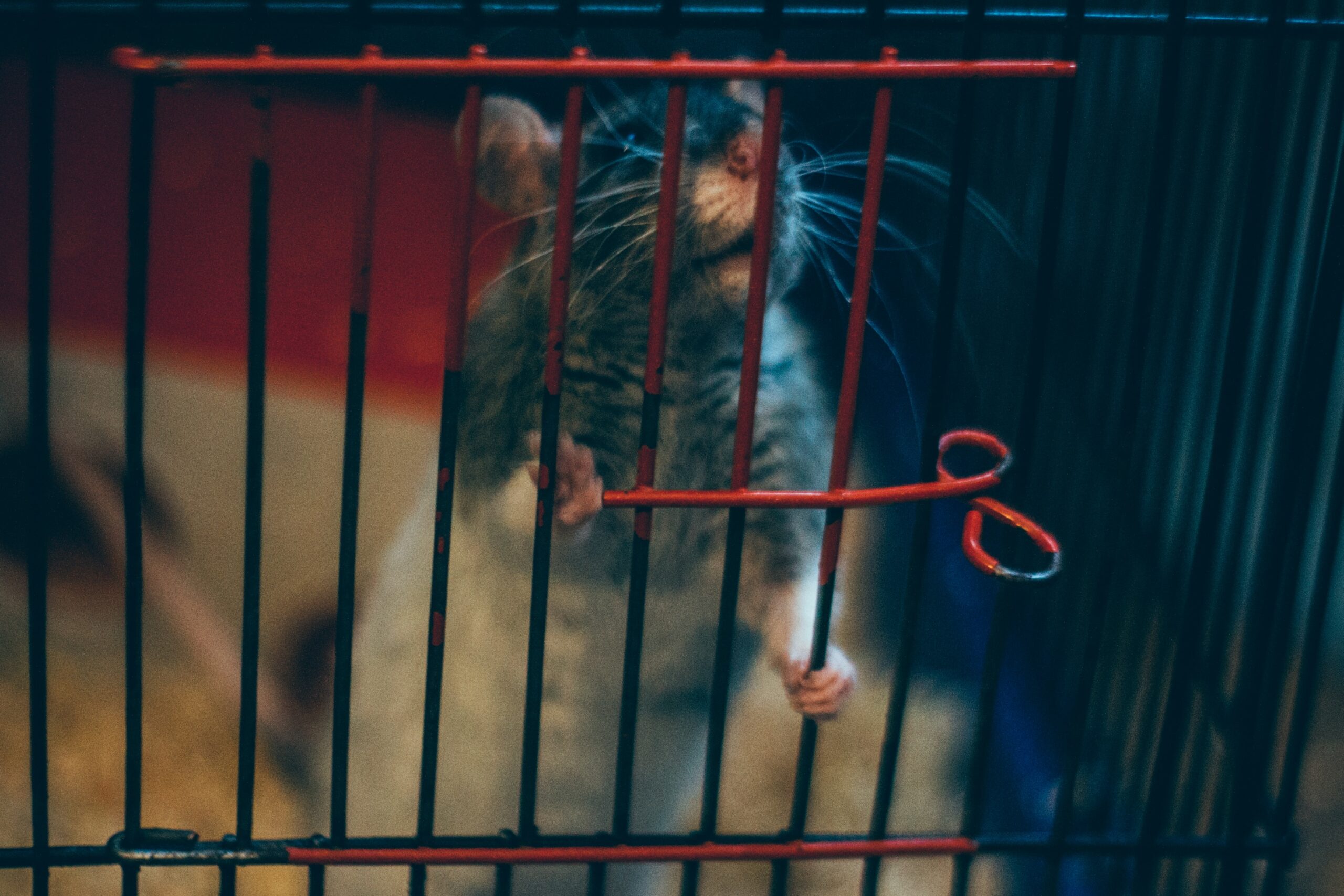Do you know how to care for your pet rat???
Are you considering getting a pet rat? Or do you already have one and want to make sure they are well taken care of? Either way, congratulations on being a responsible pet owner! Rats are intelligent, social animals that can make fantastic pets.
However, caring for them can be different than other animals such as dogs or cats. In this blog post, we will cover everything you need to know about how to care for your pet rat. From creating the perfect habitat to feeding them the right diet – we’ve got you covered! So let’s dive in and learn how to give your furry friend the best possible life.
Rat Housing
Rats are social creatures and should always be kept in pairs. A good rule of thumb is to have one rat for every foot of cage space. So, a pair of rats should have a cage that is at least 2 square feet. The more floor space they have, the better.
Rats are very active and love to climb, so their housing should be tall rather than long and narrow. It should also be escape-proof! Rats are excellent climbers and can squeeze through surprisingly small openings.
Your rats’ cage should be lined with absorbent bedding, such as recycled newspaper pellets or aspen shavings. Avoid using cedar or pine shavings, as they can be harmful to your rats’ respiratory systems. There should also be plenty of hiding places and chew toys available for your rats to keep them entertained and engaged.
Foods for Rats
As a pet owner, it is important to know what kind of foods are safe for your rat to consume. Rats are omnivores, which means that they can eat both plants and animals. However, there are some foods that are better for them than others.
One of the best things you can feed your rat is fresh fruits and vegetables. These provide essential vitamins and minerals that help keep your rat healthy. Some good options include dark leafy greens, carrots, apples, and bananas. You should avoid feeding your rat high-sugar fruits like grapes or watermelons, as these can cause health problems.
You should also give your rat a variety of different types of protein. This can come from both animal and plant sources. Good animal sources include cooked chicken, hard-boiled eggs, and cottage cheese. Plant-based proteins include beans, tofu, and nuts. Avoid giving your rat processed meats like hot dogs or deli meat, as these can be high in fat and salt.
Rats also need a source of complex carbohydrates in their diet for energy. Good options include brown rice, oatmeal, whole-grain bread, and pasta. You should avoid giving your rat simple carbohydrates like candy or cake, as these can cause health problems.
In addition to a healthy diet, rats also need access to clean water at all times. You should change their water daily and wash their food bowls regularly to prevent illness.

Rat Medical Needs
Your pet rat will need regular check-ups and vaccinations just like any other pet. Additionally, rats are susceptible to a few health problems that you should be aware of.
The most common health problem in pet rats is a respiratory disease. This can be caused by several different viruses, bacteria, or even allergies. Symptoms include sneezing, runny nose, and wet or crusted eyes. If you notice any of these symptoms, take your rat to the vet immediately.
Another common health problem in pet rats is obesity. This is usually caused by an improper diet or too much cage confinement. Rats should have a diet that consists of fresh vegetables and fruits, as well as a quality rat food mix. They should also have plenty of room to exercise and play. If you think your rat may be obese, take them to the vet for a check-up.
Finally, pet rats are also susceptible to various types of cancer. The most common type is lymphoma, which can affect the lymph nodes, spleen, liver, and lungs. Symptoms include weight loss, lethargy, and difficulty breathing. If you notice any of these symptoms, take your rat to the vet immediately for treatment.
Read More: How Long Do Rats Live?
Rat Cleaning Needs
Your pet rat will need a clean cage to live in. You will need to clean the cage at least once a week. You will need to remove all of the bedding and any toys from the cage. Then, you will need to wash the cage with soap and water. Rinse the cage well and dry it completely before adding new bedding and toys.
Your pet rat will also need to be cleaned. You will need to do this every few weeks. You will need to gently brush your pet rat’s fur with a soft brush. You can also use mild shampoo on your pet rat if necessary. Be sure to rinse your pet rat thoroughly after shampooing.
Rat Handling
How To Care for Your Pet Rat
There are a few things to keep in mind when handling your pet rat:
1. Always wash your hands before and after handling your rat. This will help keep them healthy and free from disease.
2. Pick your rat up gently, supporting its body with your hand. Avoid holding them by the tail, as this can cause injury.
3. Never put your rat down in a place where it could fall and hurt itself. Always place them on a soft, flat surface.
4. Be aware that rats are very curious creatures and may want to explore their surroundings – including you! Keep a close eye on them to make sure they don’t get into any trouble.
Final Notes
Before you bring your new rat home, make sure you have everything you need to care for them. You will need a cage that is at least 18x24x18 inches, food and water bowls, bedding, and toys.
Rats are social animals and do best with at least one other rat as a companion. Choose rats of the same sex to avoid unwanted litters.
Rats are very active and playful so they need plenty of space to run around and explore. Their cage should be escape-proof and have plenty of hiding places.
A diet rich in fresh fruits, vegetables, and whole grains is important for your rat’s health. Avoid processed foods, sugary treats, and fatty meats.
Rats are susceptible to infections so it’s important to keep their cage clean. Clean the cage weekly with hot water and vinegar or bleach. Remove all food and water bowls before cleaning.
Rats typically live 2-3 years but with proper care, they can live up to 4-5 years. Regular vet checkups are important to catch any health problems early on.

